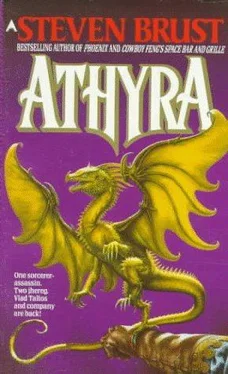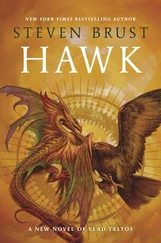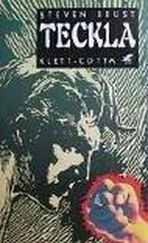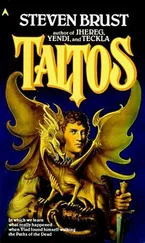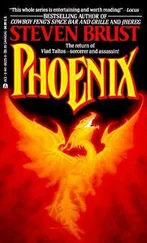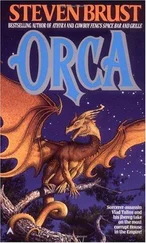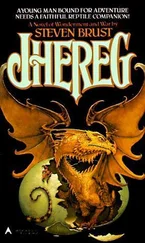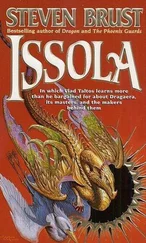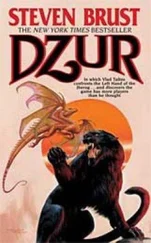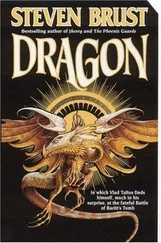Steven Brust - Athyra
Здесь есть возможность читать онлайн «Steven Brust - Athyra» весь текст электронной книги совершенно бесплатно (целиком полную версию без сокращений). В некоторых случаях можно слушать аудио, скачать через торрент в формате fb2 и присутствует краткое содержание. Жанр: Книги. Описание произведения, (предисловие) а так же отзывы посетителей доступны на портале библиотеки ЛибКат.
- Название:Athyra
- Автор:
- Жанр:
- Год:неизвестен
- ISBN:нет данных
- Рейтинг книги:3 / 5. Голосов: 1
-
Избранное:Добавить в избранное
- Отзывы:
-
Ваша оценка:
- 60
- 1
- 2
- 3
- 4
- 5
Athyra: краткое содержание, описание и аннотация
Предлагаем к чтению аннотацию, описание, краткое содержание или предисловие (зависит от того, что написал сам автор книги «Athyra»). Если вы не нашли необходимую информацию о книге — напишите в комментариях, мы постараемся отыскать её.
Athyra — читать онлайн бесплатно полную книгу (весь текст) целиком
Ниже представлен текст книги, разбитый по страницам. Система сохранения места последней прочитанной страницы, позволяет с удобством читать онлайн бесплатно книгу «Athyra», без необходимости каждый раз заново искать на чём Вы остановились. Поставьте закладку, и сможете в любой момент перейти на страницу, на которой закончили чтение.
Интервал:
Закладка:
“There isn’t any music? I thought the best taverns had music.”
Vlad sighed and returned from his reverie. “No, there is no music. I don’t like music when I eat. Although,” he added, “I must admit that, here, music would be a welcome distraction.”
“Well, you are likely to get your wish. There will probably be someone arriving today or tomorrow. There hasn’t been a minstrel in several days, and there are usually one or two a week. Besides, harvest is almost over, and they always show up around the end of harvest.”
“Indeed?” said Vlad, sounding suddenly interested. “A minstrel? Good.”
“Why?”
“I like minstrels,” said Vlad.
“You mean you like to listen to them, or they are the sort of people you like?”
“Both, actually.”
“You’ve known minstrels, then?”
“Several.”
“I didn’t know they had them in the big cities.”
“Just about anything you can find outside the city you can find in it as well.”
“Really?”
“Yes.” Vlad looked thoughtful for a moment, then added, “Although there are exceptions.”
Savn returned to his salad, while waiting for Vlad to continue. When the Easterner did not do so, Savn swallowed and said, “What are the exceptions?”
“What? Oh. Peace and quiet, for example,” said Vlad. “You don’t know how pleasant these things are unless you’ve gone most of your life without them. Do you know, when I left the city I had trouble sleeping for quite a while, just because I wasn’t used to the silence.”
“That seems odd.”
“Yes, it seems odd to me, too.”
“When did you leave?”
“Shortly after the Uprising.”
“What uprising?”
Vlad granted him another indecipherable look, this one a quick frown. He said, “There was some trouble in the city with the Easterners and the Teckla.”
“Oh,” said Savn. “Yes. I heard something about that. Didn’t some traitors kill Her Majesty’s personal guards and try to kidnap her?”
“Not exactly,” said Vlad.
“Wait a minute,” said Savn. “Were you involved in that? Is that why you had to—”
“No,” said Vlad. “I was involved, I suppose, but only in trying to stay out of the way.”
“Well, what did happen?”
Vlad shook his head. “For the most part, I don’t know. There was almost a war, and there was conscription, and there was blood, and then it was over.”
“What’s conscription?”
“When they put you in the army or the navy and send you off to fight.”
“Oh. I should like that, I think.”
Vlad gave him another quick glance, then almost smiled, and said, “I wouldn’t know, myself. I’ve never been in the army.”
“Well, but you’ve killed people. It’s the same thing, isn’t it?”
Vlad laughed briefly. “Good question. There are soldiers who would disagree with you. I tend to think you’re right, though. Who’s to say?”
“I used to dream about being a soldier,” said Savn.
“Did you? That seems odd. On the one hand a soldier, on the other a physicker.”
“Well, but ... I see what you mean. But when I wanted to be a soldier it was, I don’t know, different.”
“I know,” said Vlad. “When one dreams of being a soldier, one imagines killing the enemy but not seeing the enemy bleed. Or seeing friends bleed, for that matter.”
Savn nodded slowly. “I was young and—” He shrugged and smiled a little. “I thought the uniforms looked so nice.”
“And the idea,” said Vlad, “of getting away from here?”
“Maybe, though I never thought about it that way. Have you ever known a soldier?”
“I’ve known warriors,” said Vlad.
“What’s the difference?”
“Another good question. I’m not sure, but that’s how they described themselves.”
“What were they like?”
“Arrogant, but not unpleasantly so.”
“Did they frighten you?”
Vlad laughed. “At one time or another, nearly everyone I’ve ever known has frightened me.”
“Even your friends?”
“Especially my friends. But then, I’ve had some unusual friends.”
“Yes, and one of them is a vampire.”
“Indeed.”
“That would frighten me,” said Savn thoughtfully. “There’s something about the idea of someone who should be dead that—You still say His Lordship is undead?”
“Yes.”
“Do you really mean it?”
“Yes.”
Savn shook his head. “I still don’t believe it.”
“I know.”
“How do you talk to someone who’s undead? I mean, isn’t it creepy?”
Vlad shrugged. “You get used to—” He stopped, his eyes straying toward the door. “Ah. You must be prescient. The minstrel, I suppose.”
Savn turned, and, indeed, a lady was just coming in the door to the smiles of Tern and the few patrons of his house. She wore a travel-worn white blouse and pants, with a green vest and a light green cloak. She carried a pack slung at her hip, and hanging at her back were a long-necked kordu and a shiny black horn—or pipe-like instrument that Savn didn’t recognize. Savn thought she was very pretty.
“An Issola,” remarked Vlad.
“Green and white,” agreed Savn. He was always excited when a minstrel arrived, but especially so when it was a noble, because they always had a wider variety of instruments and songs, and could tell stories of what happened in the courts of the highborn.
By whatever magic caused news to spread, people were beginning to drift into Tern’s house already, before the minstrel had finished speaking with Tem, presumably making arrangements for a room and meals in exchange for songs and stories, news and gossip.
Vlad said, “I’m going to have to speak with her, but that can wait.”
“Oh? Why?”
“Minstrels know things.”
“But will she speak to you?”
“Why not? Oh. Because I’m an Easterner? I suspect that won’t be a problem.”
Savn started to ask why, but changed his mind. He was, he decided, beginning to be able to anticipate when he was reaching a subject the Easterner wouldn’t want to discuss. The minstrel finished her discussion with Tem, and, with a surprisingly shy-looking smile directed at everyone present, she went back toward the chambers that Tem let out to travelers. Tem cleared his throat and said, “She’ll be back and play for us in a few minutes, after she’s refreshed herself.” This seemed to be a pleasing prospect to everyone. More and more people drifted into the house.
As they did, Savn couldn’t help but notice that many, perhaps most of them, looked at him sitting with the Easterner, then quickly looked away. He caught a glimpse of what might have been disgust in Fin’s expression, and dark-haired Lova, who was sitting next to Firi, seemed faintly puzzled. Lan and Tuk were sitting together with some of their friends, and, though Tuk only looked at the table in front of him, Lan seemed, for a moment, to be looking at Savn unpleasantly.
For the first time, he began to seriously question whether he ought to be seen with Vlad so much. Vlad looked at him with a slightly amused expression, and Savn wondered if his thoughts were being read. But Vlad said nothing, and presently the minstrel returned.
She had changed to a loose, clean, white blouse with green embroidery, and her leggings were a light, fresh green. Her hair was brown, with a subdued but unmistakable noble’s point, and her eyes, very dark, stood out sharply in contrast to her complexion and clothing. She carried both of her instruments, and set them at a table in the corner that was hastily cleared for her. Her teeth were white when she smiled.
“Greetings, my friends,” she said in a melodic, carrying voice. “My name is Sara. I play the reed-pipe and the kordu, and I sing, and I even know a few stories. If there were a drink in front of me, I might play something.”
Читать дальшеИнтервал:
Закладка:
Похожие книги на «Athyra»
Представляем Вашему вниманию похожие книги на «Athyra» списком для выбора. Мы отобрали схожую по названию и смыслу литературу в надежде предоставить читателям больше вариантов отыскать новые, интересные, ещё непрочитанные произведения.
Обсуждение, отзывы о книге «Athyra» и просто собственные мнения читателей. Оставьте ваши комментарии, напишите, что Вы думаете о произведении, его смысле или главных героях. Укажите что конкретно понравилось, а что нет, и почему Вы так считаете.
